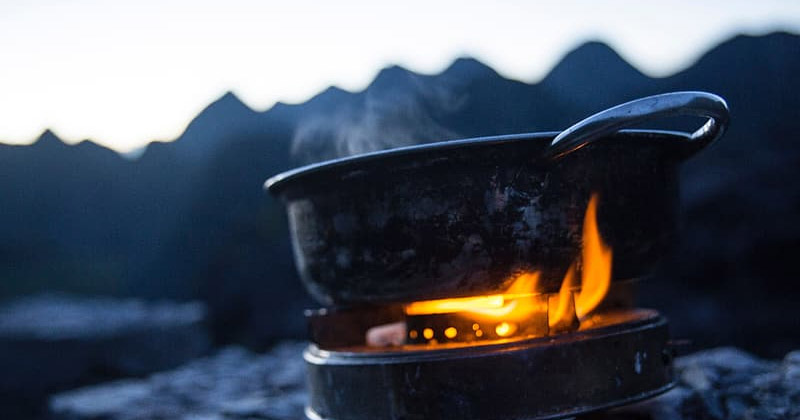It is generally said that water boils at 100 degrees Celsius. That’s also true but not everywhere. It applies to places by the sea, but not to places a few hundred meters above sea level. When water boils depends on the air pressure. It is just high enough by the sea that the water in the pot boils and steams at 100 degrees. This is normal pressure. However, if the air pressure falls, which happens with increasing altitude, then the boiling point of the water also falls. In other words, the higher the altitude is, the earlier water starts to boil and at lower temperatures. So the question arises, how does this affect cooking at high altitude? And, do eggs have to be cooked longer in the mountains?

The water that gushes on the stove in the Ladakh region is not 100, but only around 92 degrees Celsius. It is because Ladakh is a good 2,400 meters above sea level. Every 285 to 300 meters the boiling point of the water drops by about 1 degree. At an altitude of a good 8,848 meters above sea level, water boils at just 68°C degrees Celsius, on Mt. Everest. And that also means that the water doesn’t get hotter there.
Also Read: Why is Saffron so Expensive? Can it be Artificially Produced? Let’s find out
Cooking With Patience – High Altitude Cooking
Do eggs have to be cooked longer in the mountains? Here’s the say, eggs that harden in eight minutes at 100 degrees Celsius naturally take longer to cook at a temperature of 97 or even 90 degrees Celsius. And that doesn’t just apply to eggs. The cooking times of other foods are also different in higher regions. Patience is required when cooking. Even on the highest mountain, with a bit of luck, you could get a hard-boiled egg depending on the weather because that also influences the air pressure.

Also Read: Why Do We Cry?
On Mount Everest, on the other hand, boiling eggs would no longer work. The yolk would curdle at some point, but not the surrounding protein. That would stay slimy. Because egg yolks and whites stick together at different temperatures. To let the yolk coagulate, 68 degrees Celsius is enough, as 84.5 degrees Celsius is the minimum temperature required for the egg white to curdle. And you can’t get to them on Mount Everest as the air pressure there is too low for that.
In pressure cookers, you use a higher air pressure than normal pressure. The boiling temperature of water in these pots is therefore up to 120 degrees Celsius. This way the food is cooked faster.


